Nature deprivation is a real thing, and I’m witnessing the impacts of being exposed to the wild and willingly foregoing exposure in both of my kids.
My daughter loves the outdoors. She’s working for the second year in a row in Grand Teton National Park, and just the other night, we exchanged photos and video via text of our respective campfires—hers in the shadows of the Tetons and mine on the high desert of southern Idaho, where I’d camped by the Snake River while chasing carp with my fly rod.
Camping and being outside when the sun slides behind the mountains and the moon and stars take over is a visceral experience. A crackling fire interrupted by the songs of coyotes as they awaken with the night and prepare for the hunt is among my favorite things. If I’ve enjoyed a cocktail or two, I’ve been known to howl back at the pack and get satisfying answers delivered through the dark over water and sage. My daughter shares my passion for being outside in the wild. It’s soul-building.
My son, on the other hand, isn’t an outdoors kid. He’s more tuned into the digital world, where screens and controllers and remote controls have become his escape. He’s a great kid—charming, polite and in possession of a gentle heart. But he finds his Zen in a completely different environment than I do. I’m troubled by it, not because it keeps him from enjoying what I love, but rather because I believe it prevents him from experiencing life in its more primal form.
Sadly, he’s not alone in his wholly crafted passion. He’s part of an entire generation of kids who have no idea what lies over the next ridge, let alone what fish swims in what waters, or where grizzlies roam and wolves gather to hunt. He’s part of a “Lost Boys” conglomerate of kids who were allowed to soak into a TV or computer screen rather than forced or cajoled into going outside.
More Like This
And yes, I realize that I’m largely to blame for this. I’ve never been one to force feed my kids the passion that I have for fishing and the outdoors in general. Instead, I’ve let them find their own way, hopeful that they’ll come to the realization that looking up from the screen now and then is good for their souls.
Nature Deficit Disorder, an unofficial “condition” originally coined by author Richard Louv (Last Child in the Woods, 2008), may not be a medically recognized ailment, but I’ve seen its impacts on kids like my son. I’ve witnessed a complete disconnect between my son and his gaming buddies and the world that exists just out the front door. While, as a kid, I roamed suburban Denver on a banana-seat bike and mined the ditches for crawdads and carp, my son is roaming virtual worlds of MineCraft and killing Zombies with an ever-impressive array of virtual military weapons, all while shouting into a microphone at an online community of like-minded kids.
As a kid, I knew to be home when the streetlights turned on. As a parent today, I rarely have to wonder where my son is—he’ll be either in front of a screen or nestled next to an electrical outlet watching a string of YouTube videos while his phone charges.
It’s not as if he lacks the curiosity to be properly indoctrinated into the outdoors—a few years back, as we camped on the banks of a desert spring creek at the foot of Idaho’s tallest mountains, he pointed to a cave carved into the rocks on a distant ridge.
“I’m going up there,” he said definitively. He took the two dogs and wandered off. It was the first and only time I ever became worried about his whereabouts—two hours passed before his sister and I climbed into the truck and motored off to find him. And find him, we did. He and the dogs were resting on a rock at the mouth of the cave after a four-mile, mostly uphill trudge. He was exhausted. He was sweaty. And he was grinning ear to ear with a real sense of accomplishment. To this day, I’ve never been more proud of him. He can do these things. He does have the innate desire to discover what lies beyond, but I had to get him out of cell range for him to resort to actually taking on a real-life quest. If he had a choice in the matter, he wouldn’t have left his phone untended.
As a devout worshipper in the temple of the outdoors, this heresy gets under my skin. I’ve now given up on the idea that my son might one day voluntarily discover the wonders of the natural world or come to appreciate the tug of a trout at the end of a fly line. In a few weeks, I’m taking him on an involuntary outdoor “internship” to the north woods of Manitoba, where he’ll again be away from cell signals and wifi. He’ll once again be forced into finding something to stimulate him that doesn’t involve connectivity, digital zombies or YouTube.
We’re going pike fishing. He’s going to enjoy his first shore lunch. He’ll witness a wild part of the world that, over the last decade, has certainly changed me. I hope it changes him, to some degree. He’s a gentle boy with honestly good intentions. But with everything at his fingertips, there’s worry on my part that he’ll never develop the motivation to see and try new things. While he’s still somewhat under my thumb, I’m going to remove him from this digital world as often as I can. After allowing him to become consumed by this unholy world of videogames, social media and constant connectivity, I feel obligated as a parent to force-feed some wilderness down this kid’s throat.
There’s no small amount of guilt involved here—I accept the blame, and I’m happy to accept the responsibility for ensuring that he, at the very least, has an idea of what lies beyond. I’ve witnessed his curiosity, his yearning to discover. These are the traits I can use as building blocks to encourage him to look up now and then and wonder what else is out there.
And I know, as a parent, I’m not alone. The notion that “he’ll figure it out on his own” is convenient, but I no longer believe those words hold much promise. I’ve got some penance to pay for letting this happen in the first place. While much of what he chooses to do with his life is on him, this one’s on me.
Wish me luck.


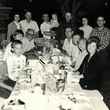

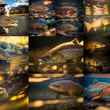
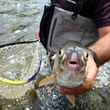

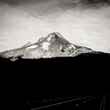
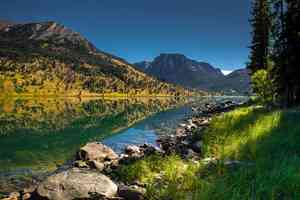
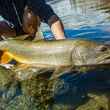

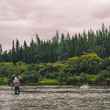

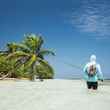

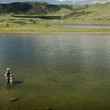
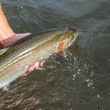



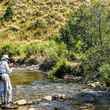





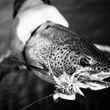


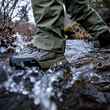
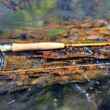

Comments